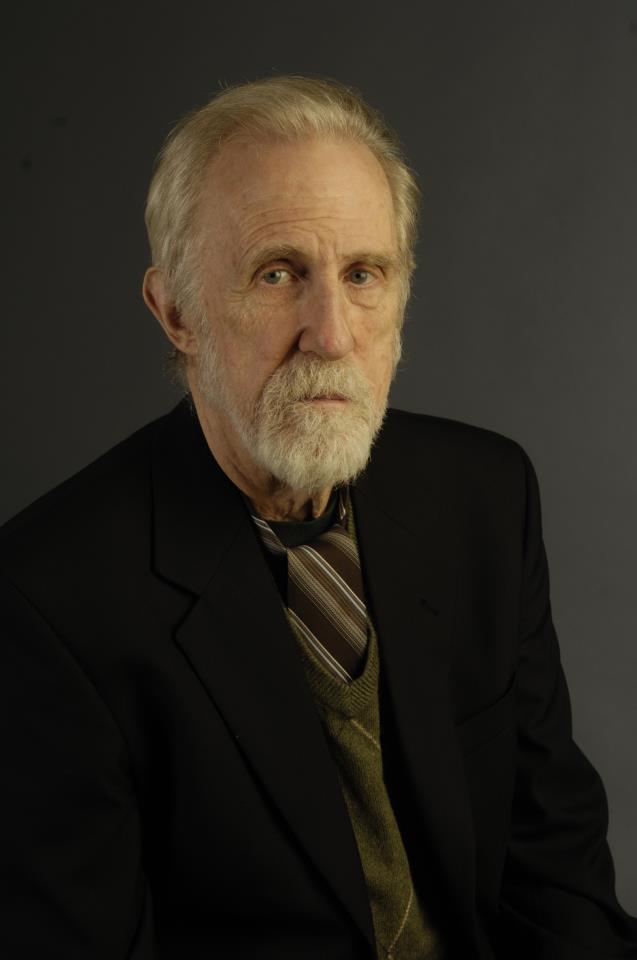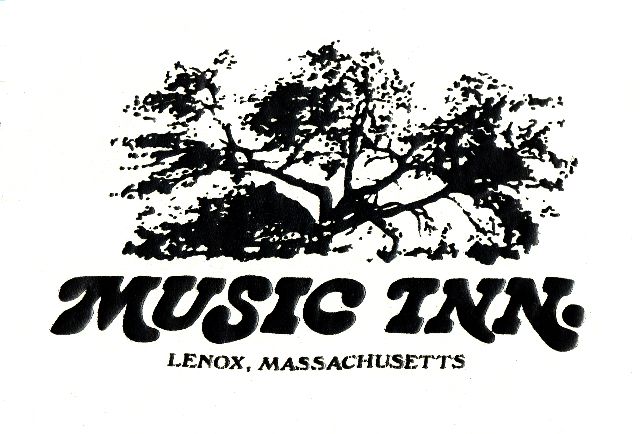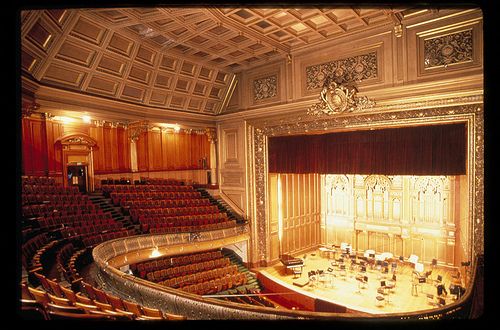“Think different.” For the grammatically particular, that slogan sounds like fingernails running down a chalkboard, as do “I’m loving it” (McDonald’s), “Eat Fresh” (Subway) and “Inspire the Next” (Hitachi). But, grammar be damned, Apple Computer used it from 1997 to 2002 very successfully. And it describes Ran Blake’s approach to both music itself and music education perfect(ly).
Overview
A trailblazing composer and music-education maverick renowned throughout the jazz and classical communities, Blake worked at New England Conservatory for 38 years, 33 of those as a teacher, and established its Third Stream Department in 1972 with the school’s then-president Gunther Schuller, who coined the term “Third Stream” in 1957.
While Schuller originally defined Third Stream as “a new genre of music located about halfway between jazz and classical,” Blake expanded the definition to encompass any composition that bridges any two distinct musical genres, not only jazz and classical. His own compositions are impossible to categorize, a stew of jazz, blues, gospel, classical and world music that’s often spiced with elements commonly used in soundtracks for film noir, his passion for over 75 years.
Based on what Blake calls “the primacy of the ear,” Third Stream emphasizes ear training, improvisation and musical memory over more traditional educational approaches while recognizing the importance of diverse influences, showmanship and even what most traditionally trained musicians would call “mistakes.” Widely recognized as one of the most innovative jazz educators of the past half century, Blake explains his philosophy in his book The Primacy of the Ear (Third Stream Associates, 2010).
Musical Beginnings
Born April 20, 1935, in Springfield, Massachusetts, Blake was raised in Suffield, Connecticut, and has lived in Brookline, Massachusetts, since 1980. His family had an upright piano and a baby grand in their living room and he began taking lessons at around age four, preferring improvisation to structure even then. “I hated to read music,” he said in a 2009 interview with The Wire. “I did the scales and arpeggios. That was easier.”
His earliest aspiration was to be a classical pianist, but he decided that wasn’t realistic given the rigidity of the form and his disdain for the traditional structure. “But by age eight or nine, I knew I wouldn’t cut it [in classical],” he said in 2015. His hybrid approach aside, Blake has become best known as a jazz player.
Film Noir Influence
At age 12, when his lifelong fascination with film noir began – sparked by Robert Siodmak’s 1946 classic The Spiral Staircase – Blake started lessons with Ray Cassarino, a professor at Hartford School of Music (now Hartford Conservatory) who backed jazz greats including Woody Herman, Jack Teagarden and Louis Prima. By the time he started high school at Suffield Academy, his chops were razor sharp.
Improvisational Bent
In addition to his technical polish and proficiency, Blake’s improvisational bent was abundantly clear in high school, where he played piano for the weekly assembly and various stage productions and often found himself at odds with the school’s music advisor – Mr. Lindstrom, as he still recalls more than 70 years later – since his selection of only traditional material and inflexible instruction on how to play it annoyed Blake to no end. “He’d say, ‘Keep only these notes in,’” or some such thing. And I’d play every other note instead,” he said in 2009. “I was insufferable. I really hated being there.”
Church Performances
But as untraditional a musician as he was in his teens, he often performed one of the most traditional musical genres known to man, hymns, which he played at churches almost every Sunday to make pocket money and build his repertoire. “I played all the churches in town,” he said in 2009. “Polish Catholic, regular Catholic, Baptist, then a fresh new Episcopal Church, an Afro-American Church, everything.”
Influences: Jazz, Gospel, Classical
Blake also began building an impressive collection of jazz and gospel LPs while in high school, Thelonious Monk being his then-favorite of the former, Mahalia Jackson of the latter. Before graduation he’d immersed himself in albums by singers like Ella Fitzgerald, Nat King Cole and Sarah Vaughan and the bebop of Charlie Parker and Dizzy Gillespie while becoming “a freak for Woody Herman’s stuff.”
Among classical composers who influenced him, he’s cited Béla Bartók, Igor Stravinsky, Claude Debussy and Sergei Prokofiev and he’s said that noir/horror soundtrack composer Roy Webb – who popularized the theremin heard in The Spiral Staircase and most of his over 75 other films – had an outsized impact on his own compositional style.
First Compositions, Rock Experience
Blake began writing music while in high school, his first compositions being film scores for move plots he’d written himself, none of which were ever produced or recorded. He also played with a rock band called Windsor Locks briefly during his teen years, mostly at local VFWs and Elks clubs, but he found himself not well suited to the then-brand-spankin’-new genre. “[My bandmates] liked my playing rhythmically, but not what chords I did,” he’s said. “I couldn’t swing. I couldn’t work with the drummer.”
Jazz Major, Festival Organizer
After high school, Blake enrolled at Bard College in New York, where he majored in jazz – after successfully petitioning the school to make it a formal program – and organized several on-campus jazz festivals while performing regularly with vocalist-composer Jeanne Lee, with whom he recorded his first LP in 1962. He graduated in 1960.
Gunther Schuller, School of Jazz
But the course of Blake’s future had been set before finishing at Bard, in 1959 when he was an intern at Atlantic Records – doing filing, getting coffee, sweeping floors – and happened to meet Gunther Schuller, co-founder of the Modern Jazz Society, when he was visiting Atlantic’s office. Schuller encouraged Blake to join a three-week summer program at the School of Jazz in Lenox, Massachusetts – which had begun in 1957 on the grounds of Music Inn – and Blake did exactly that, enrolling in both 1959 and 1960, the program’s final year. Some of the era’s most celebrated jazz musicians/composers taught classes, among them Oscar Peterson and Dizzy Gillespie, and Blake has said that he developed much of his signature style through what he learned in Lenox.
The Newest Sound Around
After getting his degree from Bard, Blake remained in New York working as a waiter at The Jazz Gallery, but his table-waiting days came to an end in 1962 after he made his first album, The Newest Sound Around, as a duo with former classmate Jeanne Lee. Released by RCA, reviews were strong and Blake and Lee hit the road, appearing at the Monterey Jazz Festival before touring Europe that year and again the next.
The album won the RCA Album First Prize in Germany, a Prix Billie Holiday Award and is part of the Académie du Jazz, a French association that recognizes top jazz artists and recordings. The pair performed together for years and in 1989 recorded You Stepped out of a Cloud on Owl Records.
Ran Blake Plays Solo Piano, New England Conservatory
In 1965, Blake recorded his second LP, Ran Blake Plays Solo Piano, on the ESP-Disk label. In 1967, Schuller became president of New England Conservatory, a position he held until 1977, and recruited Blake as its Community Services Director, a position he held until 1973. In that job, Blake was in charge of organizing musical events for local retirement homes and local prisons in addition to recruiting minority students to the school, which was the first jazz conservatory with a community outreach program.
Third Stream Department
In 1972, Schuller appointed Blake as chairman of the school’s newly established Third Stream Department (now the Contemporary Improvisation Department). Schuller had coined the term “Third Stream” in 1957, first using it in public during a talk at Brandeis University that year, and wanted to promote the concept with a formal department using a custom-made curriculum. Considering Blake’s genre-bending blend of jazz, gospel, classical and film noir influences, Schuller decided he was the ideal person to head it up – which Blake did for 33 years.
Expanded Definition
Within a year of taking the position, Blake expanded Schuller’s original definition of Third Stream – “about halfway between jazz and classical” – to mean compositions that bridge any two distinct musical genres. His inspiration to do so came straight out of the classroom, as he explained in 2009. “I widened the definition because in the program’s first year, we had a student from Ethiopia who said, ‘Why not my country?’” In 1981, Blake explained his reasoning behind the revised definition at a symposium for music teachers. “Why only classical and jazz?” he said. “Why not substitute one of the many styles and traditions of ethnic music? What would one label the vital percussive tribal music of Nigeria blended with the cries of the Ainu from northern Japan?”
Northern Noir, Regattabar
Blake latest album is Northern Noir, recorded as a duo with saxophonist Andrew Rathbun and released by SteepleChase Records in 2020, the year of his 85th birthday. Since resettling in Massachusetts in 1967, he’s been a regular onstage presence at Regattabar in Cambridge and has recorded over 50 albums, both solo and with others.
And they’re all very different because, grammar be damned, Ran Blake thinks different.
(by D.S. Monahan)





